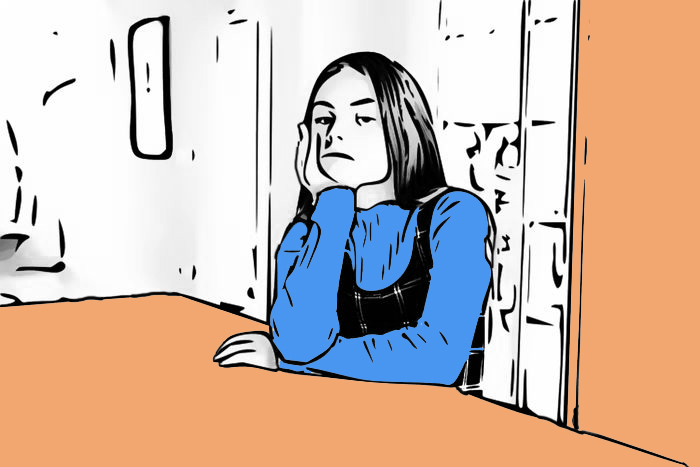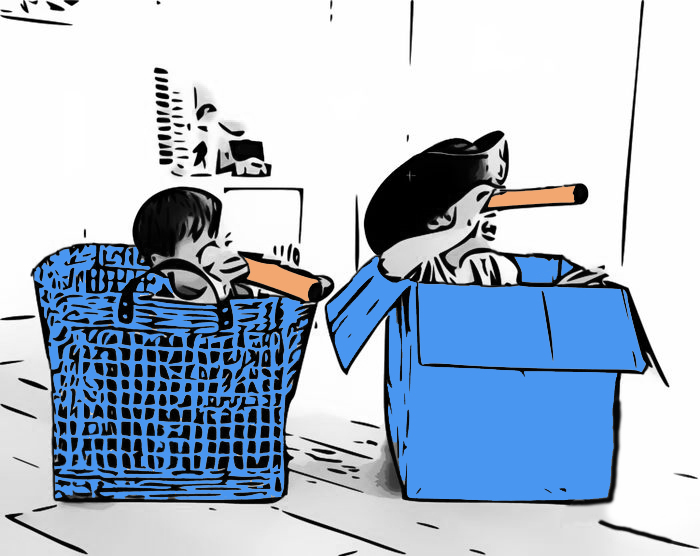Is your big kid doing something you’ve never seen before?
It is often the case that just when we think we have things figured out, the kiddo changes.
Are these changes NO BIG DEAL or a NEED FOR CONCERN?
- Typical new behaviors include aggression, anxiety, non-compliance, and pulling away.
- These changes are sometimes no big deal. But, sometimes they indicate a big concern.
Here’s HOW to tell the difference...
Most kids have what we clinically refer to as “asynchronous development.” This term means that a child might make great strides in one area and then seem to drop back in others. These changes can sometimes be cause for concern and other times be “no big deal.” Here are some thoughts on how to tell the difference.
Changes in Elementary School and Older
Aggression
Sometimes toddlers and preschoolers may display some aggressive behaviors. Kids under 4 are often inclined to express their needs physically before they get the words down to express their needs verbally. This behavior is only a major issue if the child is aggressive very frequently, tantrums almost daily, or seems to be making slow progress in expressing wants and needs.
By kindergarten, we want to see aggression dropping off dramatically. An occasional ‘aggressive’ act might happen, but regularly using punching or kicking to communicate will not be tolerated on the playground at school. If your child is showing lots of aggressive behaviors, talk to the school psychologist or counselor, or reach out to a psychologist in the community.
By mid-elementary, the frequent or sudden onset of aggression is a concern. If your child is very angry or aggressive, something could be going on emotionally. Think about whether or not your child has experienced a recently upsetting experience, such as a move, death of a loved one, or divorce. If so, the child may need therapy or support to get through that. If not, your child may have another emotional or behavioral issue. Either way, it is important to seek out the help of a school psychologist or a psychologist in the community.
By middle school and high school, any aggression is cause for concern. You will want to dig in to understand what is going on with your child. If there are major communication skill challenges, sometimes aggression will pop up as a way of dealing with frustration. If there was a trauma, aggression may be a new issue that arises. Seek help from a mental health provider right away.
Anxiety
Almost everyone experiences anxiety at one point or another.
For a child with autism or another disability, we sometimes see anxiety crop up after some other major challenges have been surmounted. For example, if your child used to be aggressive and now is “keeping his hands to himself,” you might see some new anxiety.
Another reason would be that children are approaching transition points and they are unsure of what to expect. Some kids also have anxiety when upsetting changes come up in family life such as a divorce, a move, or death of a loved one. This situation is one to tune into with both ears. Your child may navigate this okay with your support. If the anxiety persists over the course of two or three months, seek help from a mental health provider.
Non-Compliance
For kids with autism or ADHD, specifically, I have seen an interesting pattern with non-compliance.
It may be that your child is on a behavior plan at school that seemed to be working well. Maybe the child has been on that plan for several months and ticking along just fine. Suddenly, they just stop doing the good behaviors they were doing before.
What is happening?
Usually, the child has either become tired of the reinforcement you have in place, OR, the adults stopped doing the intervention altogether. I have often found that once kids start to make progress, the adults stop doing all of the things that brought that change into effect.
In either case, have a talk with the child. You can start to learn if new rewards or reinforcement are needed, a new goal could be developed (this one might be mastered), or you simply need to put that good intervention, you accidentally forgot to do, back into place.
Pulling Away
As kids develop, you may notice a period where they are really “doing their own thing.” Often in the early teen years, this change is just a part of normal development. You may remember your grandma telling you, “enjoy all those cuddles now, because one day they won’t want them anymore.” Yep! Normal.
The time to be concerned is when your child is refusing to socialize with anyone, including peers. This change could be a sign that your child is depressed or very delayed in social development. In that case, seek help from a mental health provider.
But…what if…our child is acting funny and it’s none of these!?
Ah, Kids!
If your child is just acting goofy, getting obsessed over a certain activity, telling ridiculous long stories that seem to have no point, this is very likely just fine.
With any “new” behavior, just keep an eye and make sure it isn’t getting in the way of the child’s life AND it isn’t going on for more than a few months. Otherwise, that behavior could be a concern.
And more importantly, remember to enjoy them! Their quirky, uniqueness is one of the reasons we fell in love with them in the first place.
And in all things, you’ve got this. You rock. We’re here for you.
Dr. Willard
P.S. We’re here to help! Get in touch today.




